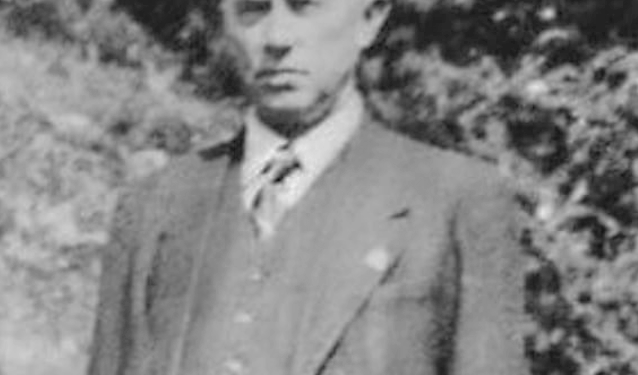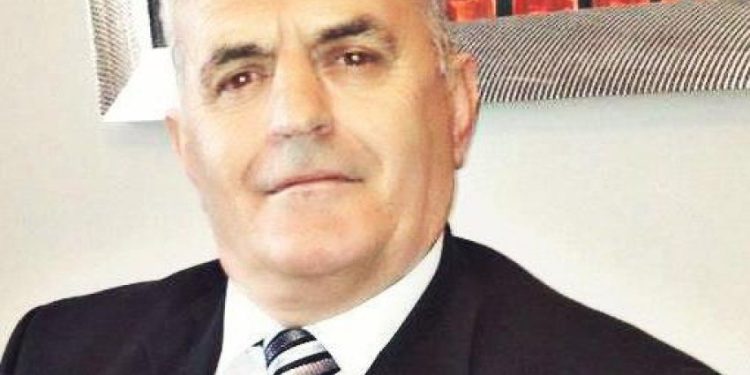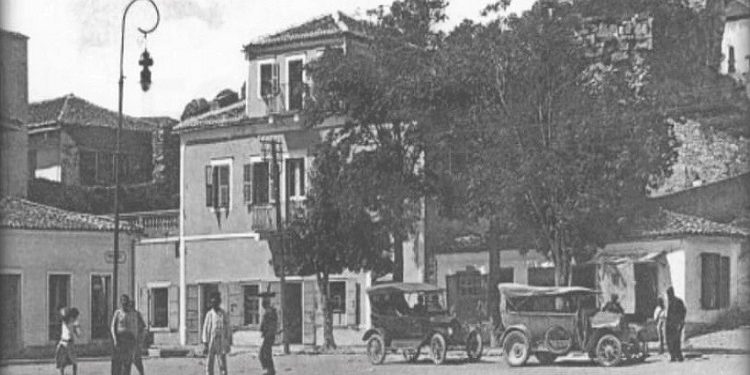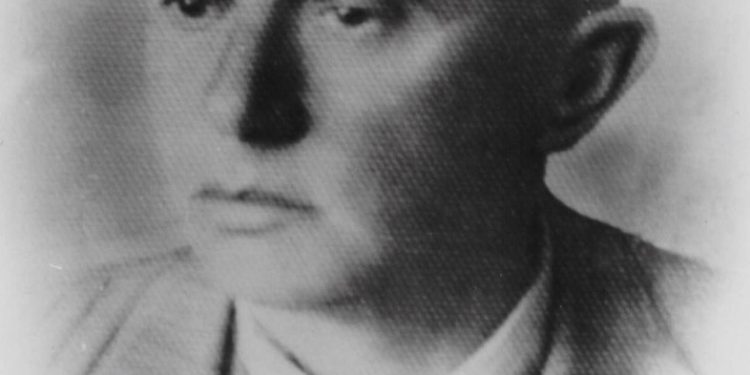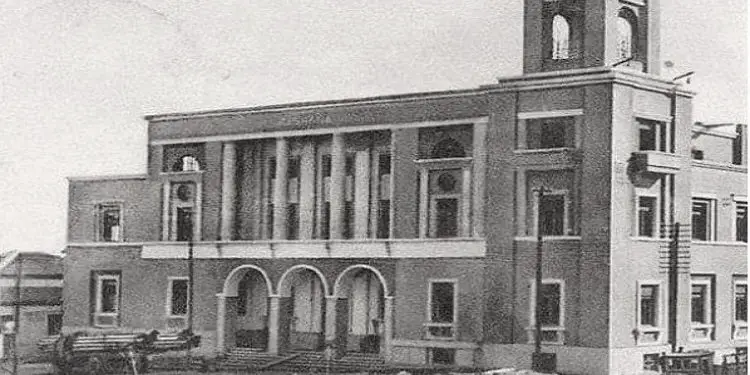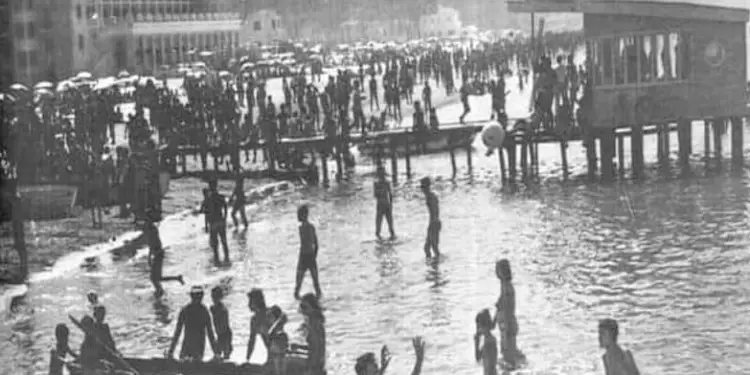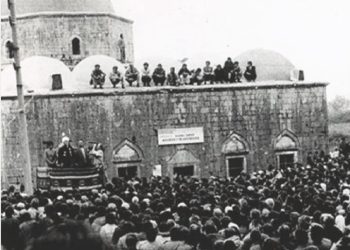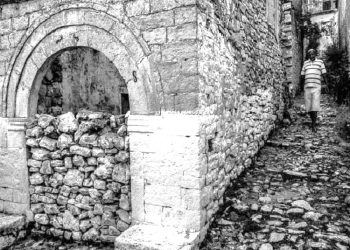From Besim NDREGJONI
Memorie.al / Lawyer Hysen S. Myshketa were born in the city of Durrës on March 2, 1885, in a Durrës civic family known for patriotic traditions, honesty, dignity and culture. According to the data found in the Central State Archive in Tirana, from the documents that are also available there in the Ottoman language, the Myshketa family appears in the records of the time since the beginning of the 17th century, in the records of the “Kasaba” District of the coastal city of Durrës.
In the civic premises, she stood out for her social relations with all the citizens of Durrës. Citizen opinion spoke with respect about him and valued him as one of the examples of the pride of his city.
The Myshket family had tied their fates, closely, not only with those of their fellow citizens from Durrës, but also with the fates of the homeland and the entire Nation, wherever there were Albanians.
That family had participated in all national and social political movements. For this reason and for the high virtues that she carried, she was known and appreciated by the intellectual elite, by the pariah as well as by the simple people of the city.
This patriotic family environment, cultured with authority, with a progressive tendency that enjoyed the respect, sympathy and love of its fellow citizens, became the basis that strongly influenced the formation and education of their son, Hysen Mushketa, in whom he kneaded many traits of valuable virtues, which over time naturally consolidated and expanded further.
Its spiritual, educational, psychological, cultural and national formation went through a long process of time and through complex circumstances that the Albanian people and nation went through in the last decade of the 19th century and in the first quarter of the 20th century, time and very important periods with big turns for the fate of the Albanians as a nation.
In the first decade of the 20th century, when he was still young and attended the Turkish Plotore School and then the Madrasah in his hometown, Durrës, Albanian lands were involved in major political and military events. The anti-Ottoman Albanian National Movement for liberation from the centuries-old conqueror, for freedom and independence, at that time had gained new, unprecedented momentum.
Those events left an impression on every Albanian. Young Hyseni also experienced them in his consciousness, as he writes in his “Memories”. After graduating from the Turkish Plotore school and Madrasah, he started working at the Court, where throughout the time, he was never influenced by religious groups, because for him as an intellectual and a patriot, they were all Albanian brothers.
National sentiment above all else
Among his compatriots, Hyseni looked for and found what united them and not what separated them. This was the principle that guided him throughout his life. That’s why he stood up and never agreed with the demands that led to division, which he always condemned and fought for its removal.
In 1913, Hyseni went to Shkodra, alongside the volunteers of the military troops, who were fighting for the defense of Shkodra, from the Serbian-Montenegrin invaders. After he returned, he continued working in the civil administration of Ismail Qemali’s Government and, then, in that of Prince Vid. During the period of the Peasant Uprising of Central Albania, he was a court clerk. He disagreed with the anti-national character of the Uprising and condemned it.
Hysen Myshketa belongs to that generation of nationalist and idealistic intellectuals, who sought the spread of schools, writing and the Albanian language, and especially for the use of the latter in the state administration. In religious terms, he was a tolerant cleric and as he himself says…; “I started an open war, in favor of religious reform…!
I personally and sincerely believe in Christ and Muhammad, I respect the mosque and the church, I love with equal feelings the Muslim and the Christian, even the or religious, especially the fellow countryman. He especially appreciated the Congress of Lushnja and understood well its role, in the moments that Albania was going through”.
In 1920, Hyseni was appointed a member of the Municipal Council for the city of Durrës. In February-March 1921, the people of Durres Prefecture elected Hysen Myshketa, their deputy in the First Albanian Pluralist Parliament. In the VIIIth Meeting, held on May 11, 1921, he was elected a member of the Committee for Justice Affairs, complaints and submissions of all kinds, and was very active in discussions, debates and legal issues.
In that Parliament, Hyseni stayed from April 21, 1921, when the first session was opened, and until the first days of March 1922, because after the failure of the March Movement, in which he participated and was one of its organizers, he was forced to exile abroad, to escape the pursuits and persecutions that fell upon its participants.
After staying for some time in Bari, Italy, and from there, he went to Istanbul, where he attended and graduated with very good results from the Faculty of Law at the University of Istanbul, completing not only legal culture, but also beyond. He returned to his homeland, in Albania, as soon as the so-called “Democratic Revolution of June 1924” won and Fan Noli came to the head of the government.
In July 1924, the Government of Fan S. Noli appointed him Mayor of the Municipality of Durrës, where he served with devotion until December 24 of that year, because with the suppression of the “June 1924 Revolution”, the serial was forced to leave Albania in exile, in Italy.
With the announcement of amnesty by Ahmet Zogu in 1926, (for all those who had participated in the June 1924 Revolution), from which Hysen Myshketa also benefited, he returned to his homeland, completely withdrawing from public life and activity political.
After that, he devoted himself to his private life, the profession of lawyer, which he practiced for about 17 years, from 1926, until 10.10.1943. Hyseni was married to Aishe Myshketa and they had a son, Isa Myshketa.
The long path in the legal profession over 35 years, starting from 1905, until 1912, as a secretary in judicial bodies and then as assistant chief secretary, judge – investigator, member of the court of first instance, deputy president the trial; 1917-1926, as chairman of the Municipal Commission of the Lands of Kullota, Shkozet, public property of the citizens of Durrës, and then in 1926 as a lawyer of the Municipality of Durrës; from 1926, until he was killed, he served as a lawyer in Durrës.
During the years 1926-1939 and until 1943, he led an insecure life, under the threat of imprisonment or shooting. They imprisoned him three times, but they could not break him, in his liberal-democratic beliefs and concepts, in his nationalist views, in his progressive attitudes, which he had to face with coolness, prudence and patience, and pass them with wisdom.
Hysen Myshketa welcomed the fascist invasion of Albania with deep indignation, calling the date April 7, 1939, as; on “Black Friday”. His patriotic conscience, the spirit of the nationalist, urged him to express himself from that time, for the salvation of the homeland.
Criminal murder of lawyer Myshketa
Monday, October 4, 1943. Attorney Hysen Myshketa’s law office, like every day, was dealing with its usual routine work. In the office, there were Av. Hyseni, his son Isai, who worked as a secretary, and his office mate, Gjon Vlashi. At 12:00 p.m., lawyer Myshketa is heading home, when a communist guerilla unit from Durres shoots him in the back with several bullets, leaving him seriously injured with several wounds on his body.
About this barbaric act, the “Kombi” newspaper dated 8.10.1943, among others, wrote: “An assassination attempt against the old patriot Hysen Myshketa. We regret to announce that a few days ago, Mr. Hysen Myshketa, a lawyer in Durrës, was seriously injured in that city, right in the middle of the boulevard, by three unknown boys, while he was going home for lunch”.
“This ugly assassination,” continues the article of the “Kombi” newspaper,- against an old patriot and nationalist, who enjoys the greatest sympathy, both in Durrës, as well as in Tirana, Kavaje and its surroundings, for his patriotism and honesty , has caused a deep anger among the people”.
While on the 17th of the same month, this same newspaper announced that; “Hysen Myshketa, seriously wounded in Durrës, died on October 10, 1943, in the Tirana State Hospital. With his soul between his teeth, he had his last thought… on the fate of the homeland. The people of the city of Durrës, with great honors and deep respect, escorted their beloved son, who dedicated his life to the city where he was born, grew up and gave his life, to his last residence…”!
After 1944…, for a part of the Albanians it was liberation, but for many, many others, as well as for the Myshketa family, it would be a second occupation, even more severe than the first, since for them to continue during a 45-year persecution.
With the advent of Democracy at the beginning of the 90s, and its victory, with the overthrow of the most brutal communist dictatorship in Europe, the patriotic, patriotic and historical figure of Lawyer Hysen Myshketa was rehabilitated, as it was done for thousands and thousands more, that the communist regime of the dictator Enver Hoxha and his successor, Ramiz Alia, had anathematized, declaring them “enemies of the people”.
Assessments and decorations for Av. Hysen Myshketa, after 1991
Since the first days, the Municipality of Durrës, at the proposal of the “Durrësi” Patriotic Association, named a street after him, and from that time even today, in Durrës there is a street named “Hysen Myshketa”. In the same way, the president of that time also awarded him with the high medal, which says: Tirana 7.11.1992, Decree No. 344, the President of the Republic Mr. Sali BERISHA, gives the Lord Hysen Sulejman Myshketa the “Martyr of Democracy” Medal.
Another evaluation and honor for the patriotic figure of Hysen Myshketa was also done by the city of Durrës, where in the relevant document, it is stated: “By Decision, no. 132, dated 16.10.1996, the Municipal Council of the City of Durrës, gives Hysen Sulejman Myshketa (After death) the title: “Honorary Citizen of the city of Durrës”.
On 24.12.1999, the Association “Durrësi” announced “MAN OF THE CENTURY”, Mr. Hysen Myshketa; “For the special contribution he has given to the city of Durrës in the field of Justice. While with Decree 10277, dated 05.05.2017, Tirana, the President of the Republic, Mr. Bujar NISHANI, gives Hysen MYSHKETA (Posthumously) the “HONOR OF THE NATION” DECORATION. Memorie.al




